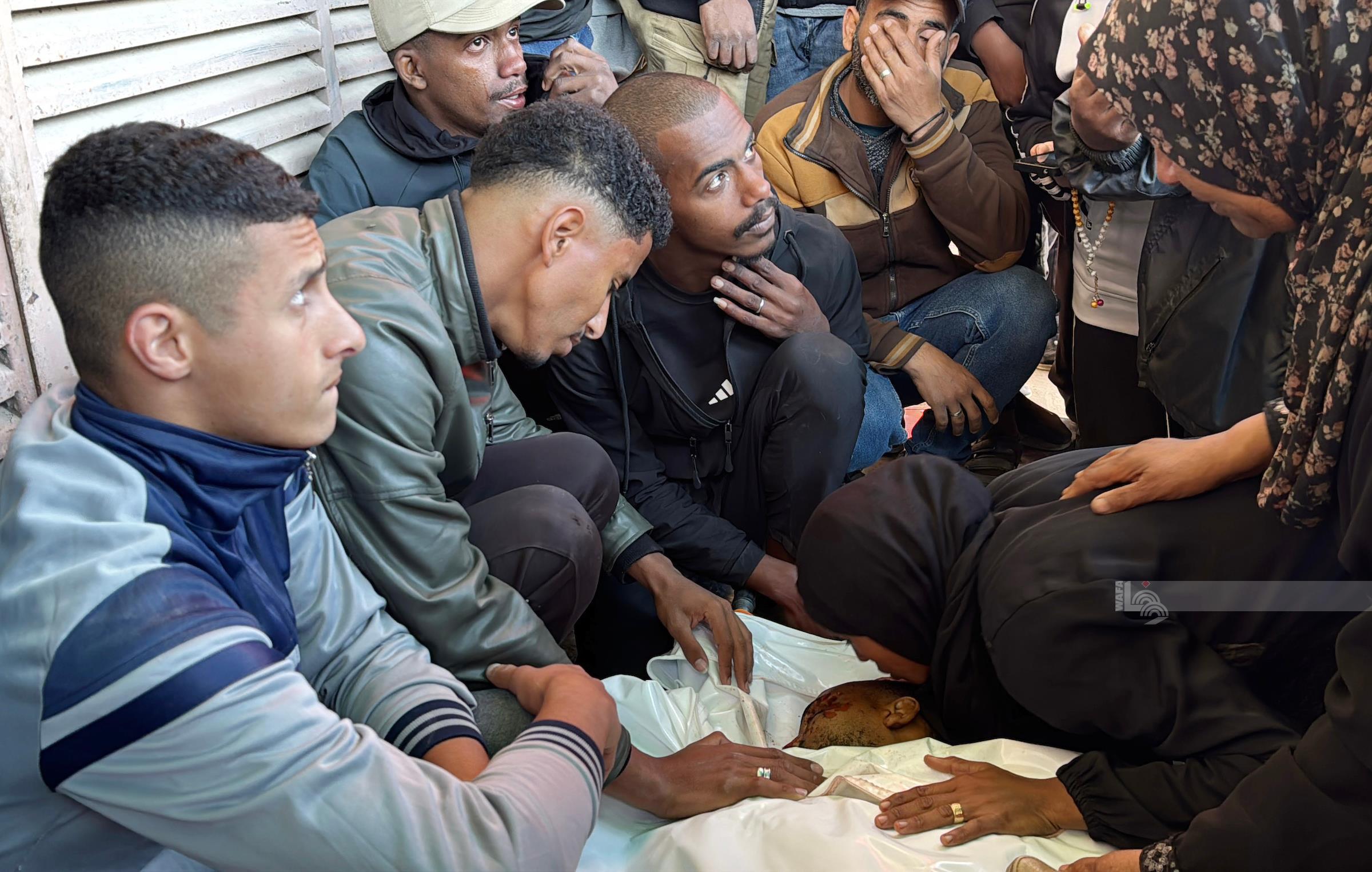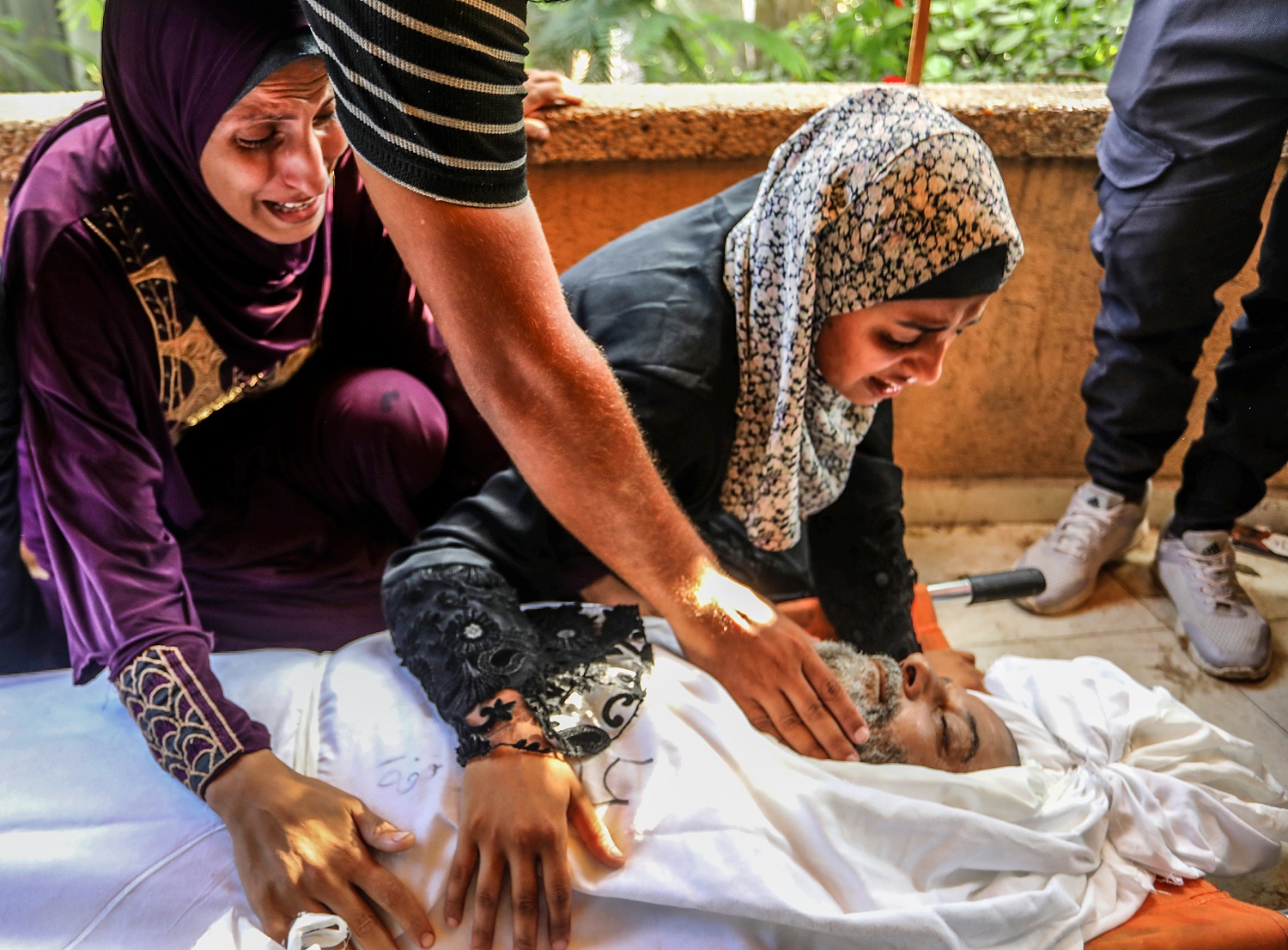Important News
- Israeli forces demolish two-story home, industrial facility in Rafat near Salfit
-

- Israeli colonists assault Palestinian woman in Masafer Yatta; army detains five in Hebron raids
-

- Israeli forces raze Palestinian land in Bethlehem-area-town to build new colonial road
-

- Senegalese PM affirms Palestine support during delegation meeting
-

- Colonists destroy water pipeline supplying six villages south of Nablus
-

- Occupation forces storm neighborhood Jenin, raid home
-

- Weather: Very hot conditions, rise in temperature
-

- Palestinian man killed by Israeli forces near Jenin
-

UN Delegations Congratulate Palestine's on new Treaty to Advance and Protect<br>Rights of Persons with Disability
NEW YORK, August 29, 2006, (WAFA)- Many official delegations visited the Palestinian delegation in the UN to congratulate them on their accomplishment of securing the insertion of foreign occupation in the new treaty to advance and protect the rights of persons with a disability.
The convention was largely approved last Friday by consensus, although there was a vote on a provision concerning "foreign occupation" that was included in the preamble. With 102 votes in favor and five countries voting against (US, Israel, Canada, Australia, Japan), the provision was adopted.
The Palestinian delegation, which was one of the most active delegations throughout the negotiations, was headed by Ms. Nadya Rasheed, who has followed the negotiations for the past five years.
She told WAFA that after five years of negotiations, history was made at the United Nations (UN) last week as a new treaty to advance and protect the rights of persons with a disability was agreed to by delegates of all 192 UN Member Nations.
The inclusion of foreign occupation was important in that it highlighted the extreme difficulties that people with disability living under foreign occupation experience. This is clearly the case for Palestinian persons living with disabilities under Israeli occupation and because of this it was important for the Convention to make a clear mention of it.
The convention will be formally sent to the UN General Assembly for adoption at its next session, which begins in September. It will then be open for signing and ratification by all countries.
This is the first convention of this magnitude for this century," UN General Assembly President Jan Eliasson said after the agreement was reached late Friday.
He told the negotiators that they were conveying to the world "the message that we want to have a life with dignity for all and that all human beings are all equal."
"This marks a great day for the UN and for persons with disabilities," said New Zealand's Ambassador Don MacKay, who chaired the talks through its final sessions. "It's a good convention and it will make a difference for millions of people."
While the convention does not create new rights, it specifically prohibits discrimination against persons with disabilities in all areas of life, including civil rights, access to justice and the right to education, health services and access to transportation, according to Ms. Rasheed.
It also calls on states parties, in accordance with their obligations under international law, including international humanitarian law and international human rights law, to ensure protection and safety of persons with disabilities in situation of risk, including situations of armed conflict, humanitarian emergencies and the occurrence of natural disasters.
Proponents of the convention maintained that the treaty was necessary because persons with disabilities represented one of the most marginalised groups and that their rights had been routinely ignored or denied throughout much of the world.
S.A.S. (20:48 P) (17:48 GMT)










